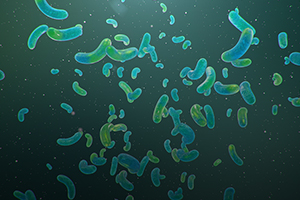Bacteria Breathe Electricity

A team of scientists exploring the depths of Yellowstone recently discovered a way to capture bacteria that “breathe” electricity. The organisms are found in pristine alkaline hot springs that range in temperature from about 110 to 200 degrees Fahrenheit (approximately 45 to 90 degrees Celsius). But since such conditions are difficult to replicate in a lab, the researchers decided to enrich their population in their natural environment using an inexpensive electronic device known as a potentiostat.
Polarized electrodes were submerged into the hot springs at four different locations. After 32 days, the microbial communities were analyzed to determine the impact of polarization levels. The researchers found that the electrodes generating the highest cathodic and anodic currents had the most substantial effect.
Bacteria such as these could play an important role in combatting environmental pollution while producing electricity for low power applications. As they “eat” toxic pollutants and convert them into less harmful materials, they pass their electrons on to metals and other solid surfaces, generating an electric current. This method of enriching them will provide researchers with access to a broader range of electrochemically active microorganisms for further study.
For information: Haluk Beyenal, Washington State University, School of Chemical Engineering and Bioengineering; Web site: https://voiland.wsu.edu/ or https://news.wsu.edu/2019/03/05/capturing-bacteria-eat-breathe-electricity/